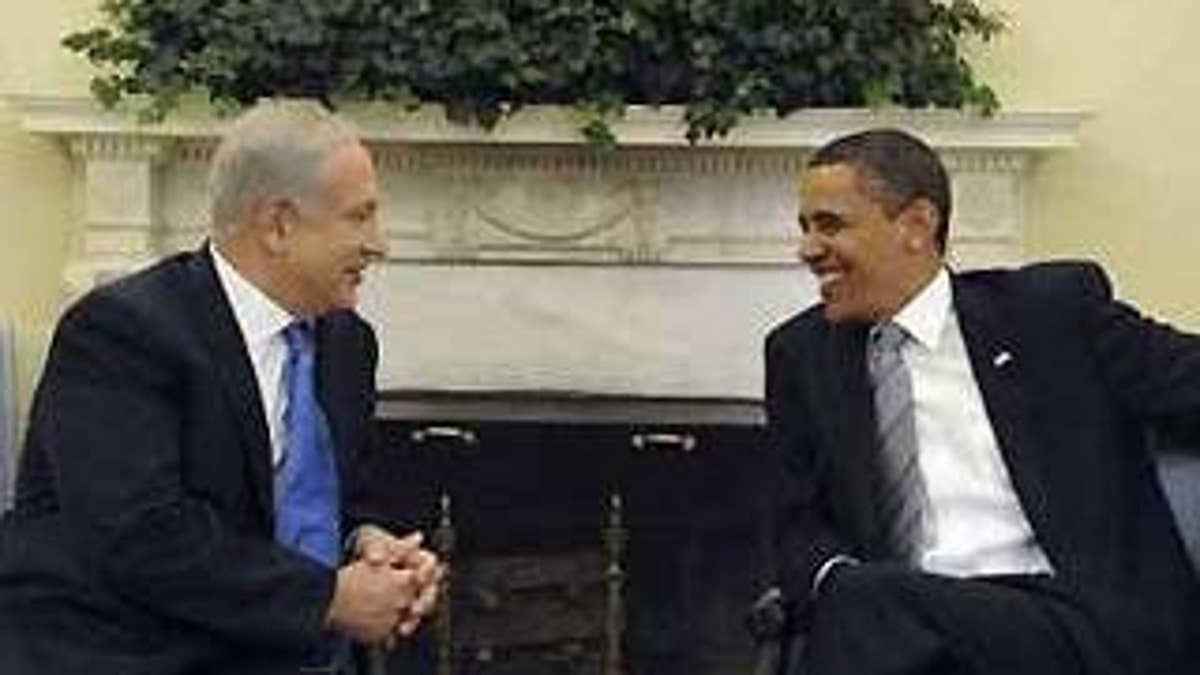
President Obama won't put an "artificial deadline" on Iran to abandon its nuclear weapons program but said Monday that the Islamic Republic's obtaining a nuclear weapon would be not only a threat to Israel and the U.S. but "profoundly destabilizing" to the international community in general.
In talks with reporters after a meeting with Israeli Prime Minister Benjamin Netanyahu, Obama said he would not let talks go on forever, but the June election in Iran will be revealing about whether there is a chance for progress with Tehran by the end of the year.
"Iran is a country of extraordinary history and extraordinary potential and we want them to be a full-fledged member of the international community, and be in a position to provide opportunity and prosperity for their people but that the way to achieve those goals is not through the pursuit of a nuclear weapon," Obama said.
The president added that a "range of steps" are still available against Iran, including sanctions, if it continues its nuclear program.
"We are not foreclosing a range of steps ... in assuring that Iran understands that we are serious," he added.
Netanyahu said Iran's obtaining nuclear weapons would be an existential threat not only to Israel but the rest of the world.
"It could give the nuclear umbrella to terrorists or worse, it could actually give nuclear weapons to terrorists I believe it would put all of us in great peril," he said. He added that in his 59 years of life -- the modern Jewish state is only 61 years old -- he has never seen the Arabs and Jews so closely share the same threat as the one they both face from Iran.
Before the meeting, a senior aide to Netanyahu, national security adviser Uzi Arad, hinted that Israel might consider military action against Iran, saying there was a "sense of urgency" in Israel over the Iranian nuclear threat.
Obama Chief of Staff Rahm Emanuel was recently quoted as telling members of the American Israel Public Affairs Committee that the U.S. could give Israel greater assistance in deterring Iran in exchange for movement toward a Palestinian state -- a key plank of the U.S. agenda for the region. Officials later said Emanuel's comments were not meant to pressure the Israelis.
But Netanyahu addressed that linkage, when he said he would like to "unite a broad front" to move "simultaneously and imperatively on two fronts -- on the front of peace and on the front of preventing Iran from acquiring nuclear capabilities."
However, Netanyahu did not explicitly endorse a two-state solution Monday.




